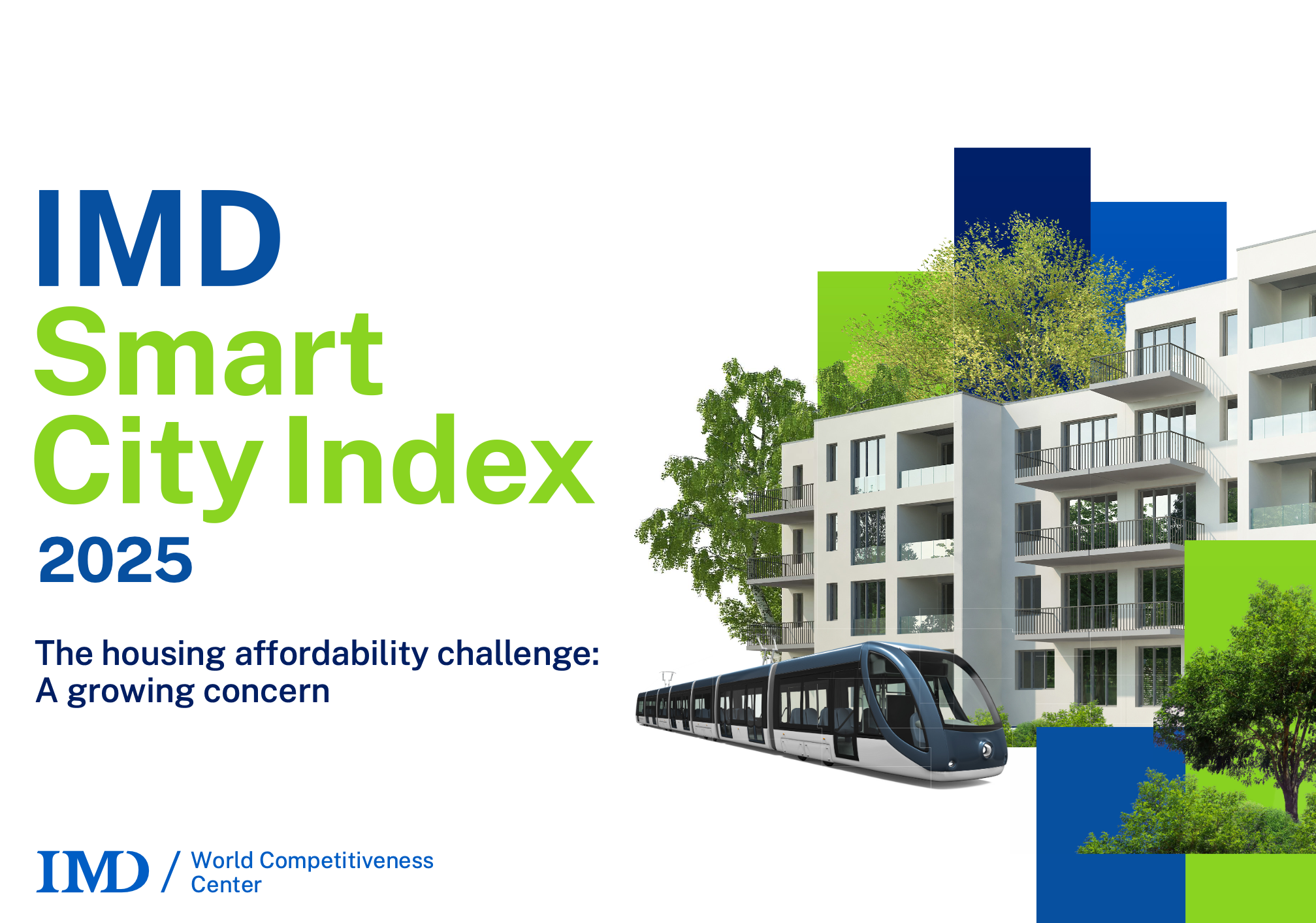- en
Davos 2023 takeaways on cities
Nearly 3,000 global leaders convened in the Swiss Alps in January for the annual World Economic Forum meeting, this time dedicated to the subject of “Cooperation in a Fragmented World”. While the discussion started with the ongoing global crises and challenges to the world economy and politics, it quickly pivoted to a more tactical discussion, on concrete actions needed on the ground level – focusing on the role of cities and local economies.
The Global Risks Report highlighted a set of ongoing and potential crises most likely to impact the world in the short and long term. Within the next two years, the world will continue to face a growing cost-of-living crisis, disasters and extreme weather events, erosion of social cohesion and societal polarisation, large-scale involuntary migration, and could suffer large-scale environmental damage incidents, as well as other effects of failure to adapt to the climate change.
For most of these issues, cities and local governments are both most likely to be directly affected, but also the best poised to address these challenges and prevent or mitigate their negative consequences.
A plan to build better
Government ministers from 31 countries, along with civil society organisations and leading companies from the building and real estate industry, joined forces in Davos this year to accelerate the development of thriving, sustainable communities, launching a new global Davos Baukultur Alliance. The World Economic Forum will host this new Alliance.
The Alliance proposes to meet the global challenges of planning and construction through high-quality Baukultur. Its aim is the sustainable, quality-oriented management of buildings, infrastructure, public spaces and landscapes for the benefit of all. Working groups within the Alliance will discuss issues such as the circular economy, energy-efficient renovations and a certification system, and jointly develop proposals for how to proceed.
Nature at the core of climate action in cities
A group of mayors attending the annual conference issued a joint statement calling for increased funding and prioritisation of nature-based solutions to help cities fight climate change. The core of the proposal is to develop funding opportunities to integrate climate action into the recovery efforts, developing and implementing plans for carbon neutrality and sustainability projects, such as green transition, active mobility and others.
By linking funding to positive social and nature outcomes, city investment plans and private financing vehicles are based on science-based climate goals and equity principles. They must promote resilience to shocks, from pandemics to climate change, and anticipate the expected impacts of urban growth, from informal settlements to migration changes and beyond.
Their proposals aim to lay the groundwork with bankable projects. Cities need standardised processes and ways to bundle projects to achieve economies of scale. Projects will be easier to scale and more attractive for investment if they are aggregated from city- and investor-led perspectives.
Redefining possibilities of urban life
Businesses, innovators and entrepreneurs should help redefine the possibilities of urban life in the future. Deloitte and Salesforce announced at the Davos forum their commitments to launch the UpLink innovation challenge, which will be focused on sustainable cities, bringing together corporations, venture capitalists, entrepreneurs, nonprofit partners and other local stakeholders to support innovative solutions addressing environmental and social entrepreneurship.
The Davos forum was also an opportunity for new greenfield cities to take centre stage, with Saudi Arabia’s NEOM and Indonesia’s Nusantara presenting their experiences and best practices, kicking off a new effort by the World Economic Forum to bolster shared learning and connect innovation hubs across these new cities and traditional cities across the globe.
Technology accelerating transformation, but not without good governance
Developing nations are already leveraging smart city technologies to improve city services and improve the quality of life for residents. The meetings also highlighted how there is an opportunity to accelerate the decarbonisation of buildings and cities through better data collection and processing.
The State of the Connected World 2023 report underscored the need for collective action from businesses and governments to address critical concerns related to ethics, security and accessibility for connected technologies.
The G20 Global Smart Cities Alliance launched a new benchmarking tool for cities to help advance global best practices for the responsible and ethical use of smart city technologies. The Alliance stressed how becoming a smart city is about more than technology, how it also requires the right policies in order to ensure its success.
Smart plans are the key to smart cities, charting a way forward so that their programmes can be built to last, to incorporate sustainability, interoperability, security and privacy, and to make a lasting impact on cities and their communities.
This year will be a year of action
Cities and local governments will have to pick up the pace in 2023, bracing for the impact of growing global crises, but also building up capacities to meet the future head-on, preparing to introduce sustainable solutions to mitigate the risks and take full advantage of possibilities that lie ahead.
In total, more than 480 public and private sessions were held as part of the World Economic Forum Annual Meeting 2023 in Davos, alongside countless announcements, meetings and side events, charting the course for an ambitious year ahead. Cities and local economies have the most to gain; they also have the most at stake.













